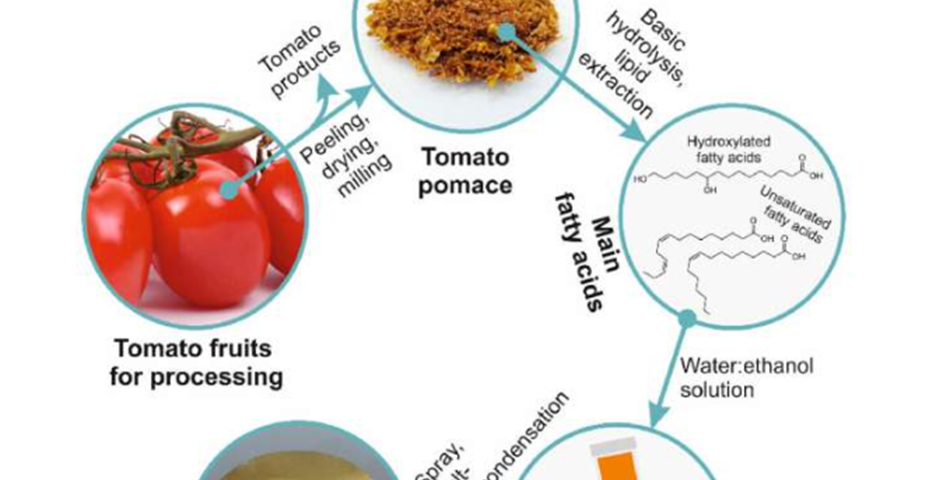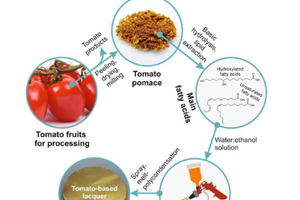Researchers from the Spain-based Instituto de Hortofruticultura Subtropical y Mediterránea "La Mayora" (IHSM-CSIC-UMA) and the Instituto de Ciencia de los Materiales de Sevilla (ICMS-CSIC-US) have created a lacquer coating derived from tomato pomace for application to the inner surface of metal food packaging and food and beverage cans.
Steel and aluminum are the metals typically used for canned foods and beverages. However, the food corrodes the metal and thus contaminates the food. Currently, to protect against such corrosion, cans are typically coated with an adhesive resin called epoxy, a petroleum-based plastic featuring bisphenol A, which is more commonly known as BPA — an industrial chemical compound that protects food, but that also releases particles that impact human health.
"BPA is similar to estrogens, that is, it passes into food as an endocrine disruptor, just as hormones do, and is associated with the appearance of diseases such as cancer and diabetes, as well as growth problems in infants and adolescents," the researchers explained.
As such, the researchers are creating an alternative coating for cans using by-products from tomatoes processed in the making of gazpachos, sauces or juices — a substance called tomato pomace.
To create the tomato-based coating, the team dried tomato pomace samples which then underwent a hydrolysis process, wherein remaining water was removed, leaving behind vegetable fat.
After the vegetable fat was removed, it was combined with ethanol (ethyl alcohol) in an 80% water, 20% ethanol mix. The resulting dispersion of grease in the water was then sprayed onto the inside surface of cans in the lab. To encourage binding to the can, the researchers applied heat, subjecting the mixture to a temperature of 200° C for a 10-to-60-minute time frame.
In the lab, this biological and environmentally friendly tomato-derived resin reportedly repelled water, adhered to the inside of metal cans coated with it, demonstrated anti-corrosive properties against salt and any liquid, and did not leech into the food like BPA did.
Further, the team demonstrated that if the can falls, for instance during transport, the resin serves as the protective barrier between the food and the metal.
The research is detailed in the article, "Bio-based lacquers from industrially processed tomato pomace for sustainable metal food packaging" which appears in the Journal of Cleaner Production.














